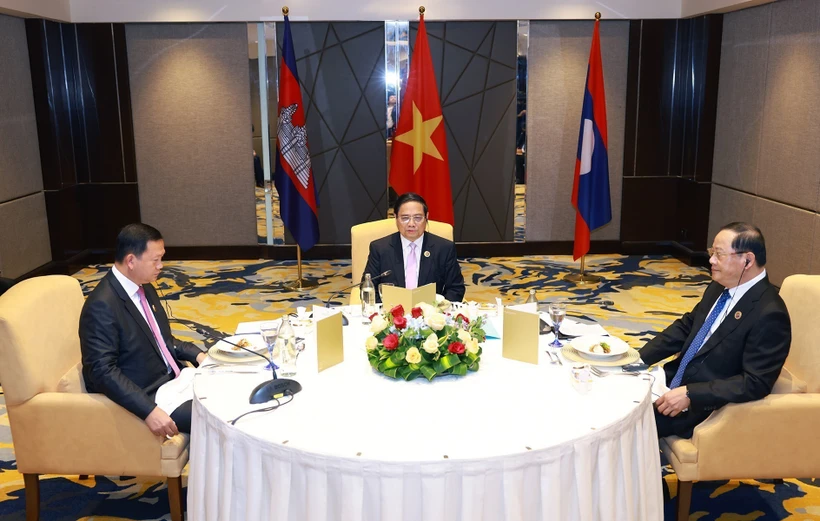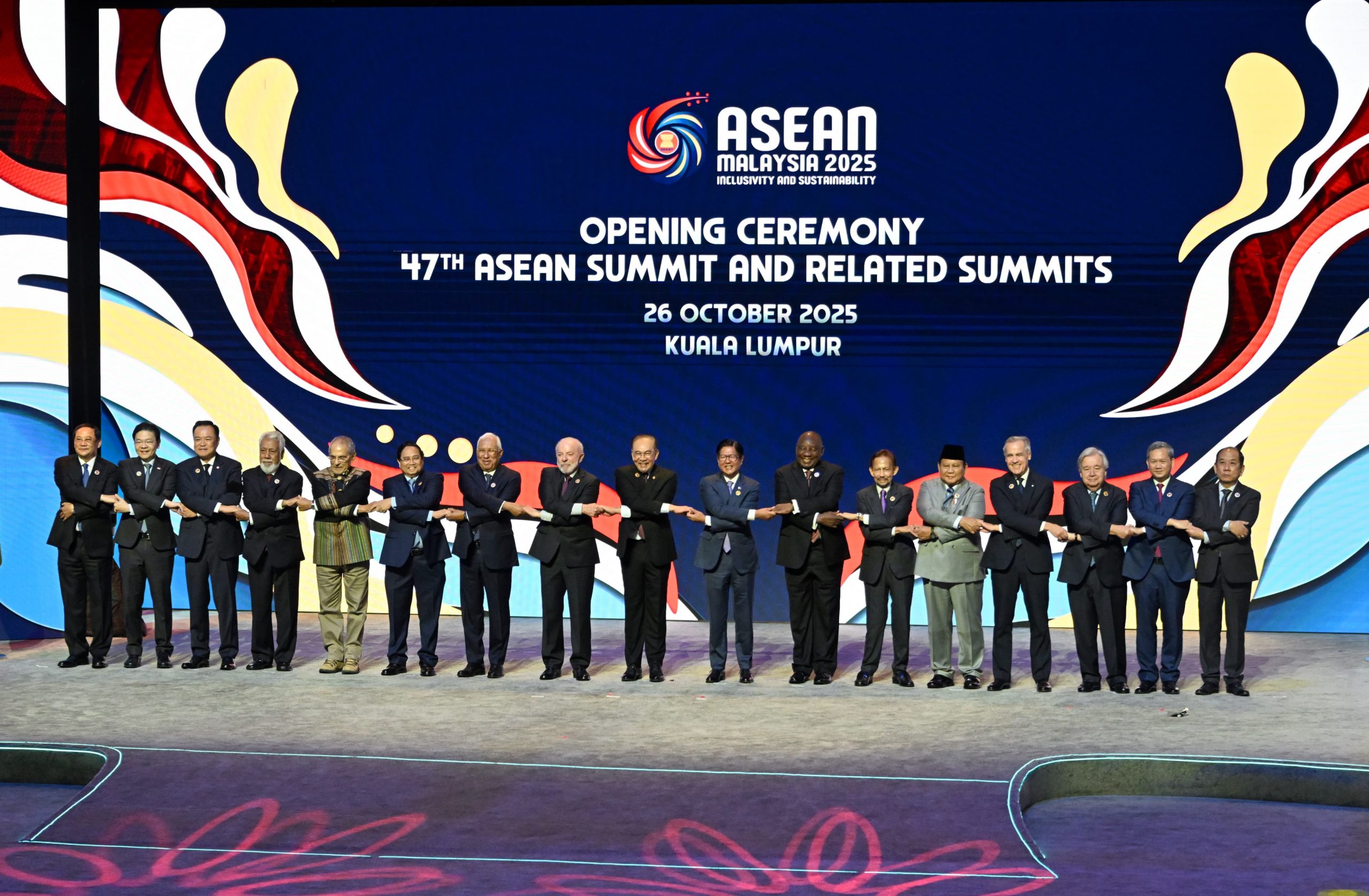On the sidelines of the recent ASEAN Summit, Vietnam, Laos, and Cambodia met to reaffirm trilateral cooperation. It may seem like routine diplomacy, but this sub-regional alliance has deeper implications—especially for Gulf stakeholders seeking stable, growth-ready entry points into Southeast Asia.

Image source: VNA
On the sidelines of the 46th ASEAN Summit in Kuala Lumpur, the leaders of Vietnam, Laos, and Cambodia convened for a working breakfast. While such meetings might seem routine, this particular gathering underscores a deepening trilateral cooperation among these nations, focusing on mutual support and solidarity.
Sub-Regional Unity: A Strategic Asset
The collaboration among Vietnam, Laos, and Cambodia isn’t just about regional camaraderie; it’s a strategic alignment that enhances their collective bargaining power within ASEAN and beyond. This unity is particularly significant as ASEAN seeks to strengthen ties with external partners, including the Gulf Cooperation Council (GCC).
ASEAN-GCC: A Growing Partnership
The ASEAN-GCC relationship has been evolving, with both blocs recognizing the mutual benefits of closer cooperation. The recent ministerial meeting in Kuala Lumpur emphasized the potential for enhanced collaboration in areas such as trade, investment, and cultural exchange.
Implications for the Gulf
For GCC nations, the Vietnam-Laos-Cambodia triad presents an opportunity to engage with a cohesive sub-regional bloc within ASEAN. This unity can facilitate more streamlined negotiations and partnerships, particularly in sectors like energy, infrastructure, and agriculture.
The tripartite cooperation among Vietnam, Laos, and Cambodia is more than a regional alliance; it’s a strategic partnership that holds significant implications for ASEAN’s external relations, especially with the GCC. As both blocs seek to navigate the complexities of the global landscape, such sub-regional collaborations can serve as building blocks for broader, more integrated partnerships.

StashAway’s entry into the UAE isn’t just a business expansion. It reflects a shift in how wealth is being understood in the region.

The 47th ASEAN Summit in Kuala Lumpur from 26–28 October 2025 marked a pivotal moment for Southeast Asia. With East Timor’s historic entry as ASEAN’s 11th member, an upgraded ASEAN-China Free Trade Agreement, and renewed engagement from major powers, the summit reflected both opportunity and strain. The question now is whether ASEAN’s long-standing unity can hold amid global polarisation and rising protectionism.

First Abu Dhabi Bank (FAB) is deepening its role as the financial bridge between the Gulf and Asia. At the second edition of the Middle East–Asia Summit in Singapore, FAB convened over 250 policymakers, investors, and business leaders to discuss how trade, innovation, and sustainability can shape a new era of cross-regional growth.